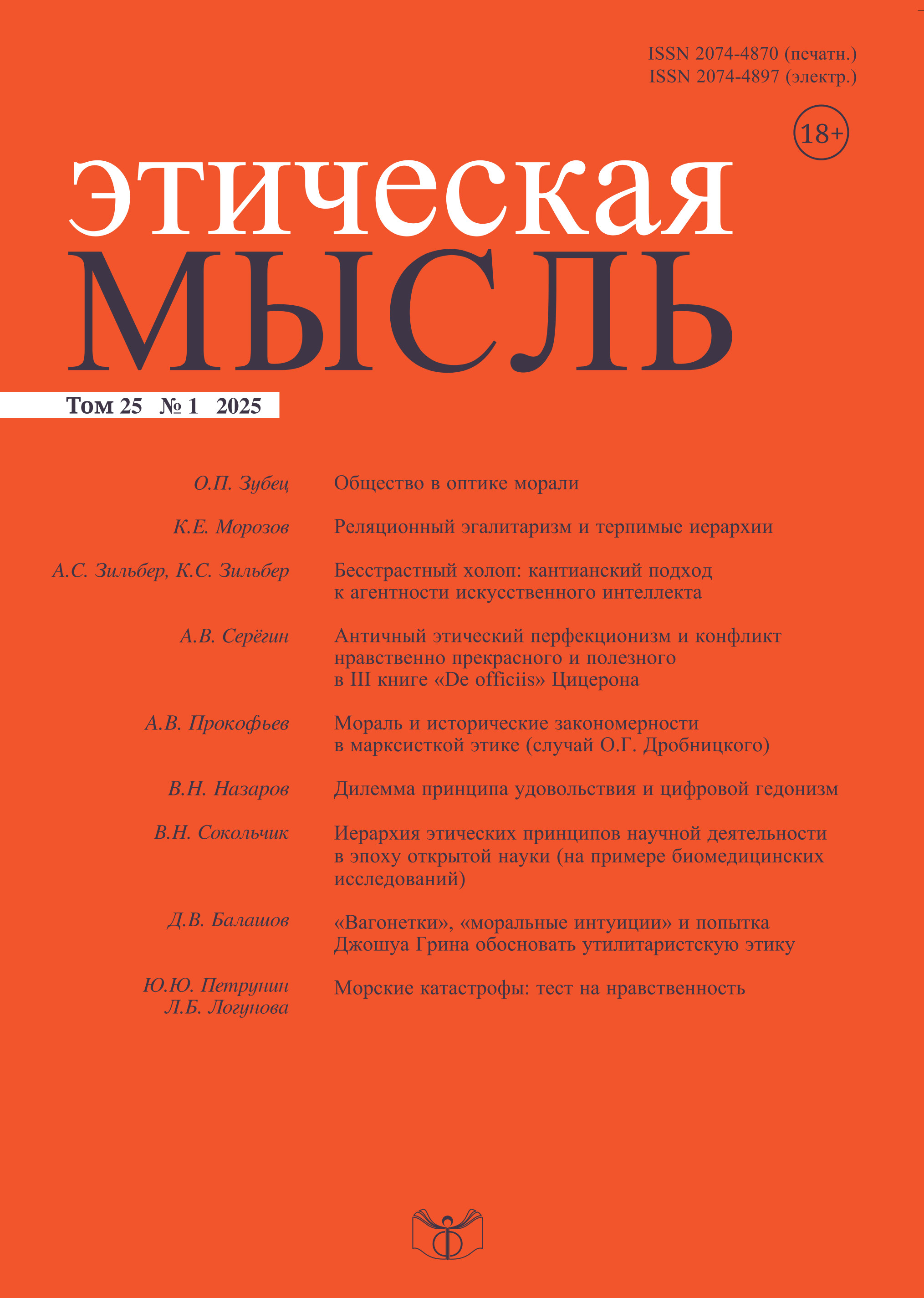Impassive Serf: The Kantian Approach to Artificial Intelligence Agency
DOI:
https://doi.org/10.21146/2074-4870-2025-25-1-36-49Keywords:
moral agency, Kant, artificial intelligence, machine ethics, moral autonomy, practical reason, free will, moral sense, responsibilityAbstract
The article examines the issue of Kant’s point of view on the moral status of artificial intelligence and the prospects for applying elements of Kant’s philosophy to evaluate AI as a moral agent. It is shown that the “standard” theory of agency by G. Frankfurt is applicable to Kant’s ethics. Kant’s approach to the moral status of the subject is determined by the nature of the agent – the structure of the abilities of the soul, among which the leading role is played by will and reason, as well as sensuality. The connection of the soul’s abilities in Kant’s system with freedom and moral autonomy is shown. Authors reveal the complex dual function of sensuality in limiting practical freedom and in fostering the freedom of a moral agent. From the point of view of Kant’s philosophy, an artificial moral agent is impossible given the complexity of human nature – and can only act as a quasi-moral agent: superficially similar to genuine moral agents, but not similar to them in essence. The status of a legal agent and the use of law instead of morality as the basis of machine ethics are also problematic in a number of aspects. At the same time, the nature of AI promises, subject to training, the possibility of overcoming certain limitations of human nature. The elements of an alternative functional approach focused on issues of responsibility, moral expectations in the field of AI and the social consequences of the use of AI are considered. The final basis for the legal status of AI is revealed in the Kantian metaphysics of law: slaves or serfs, beings with duties but no rights, which is consistent with the role of AI as a strictly limited helper.









